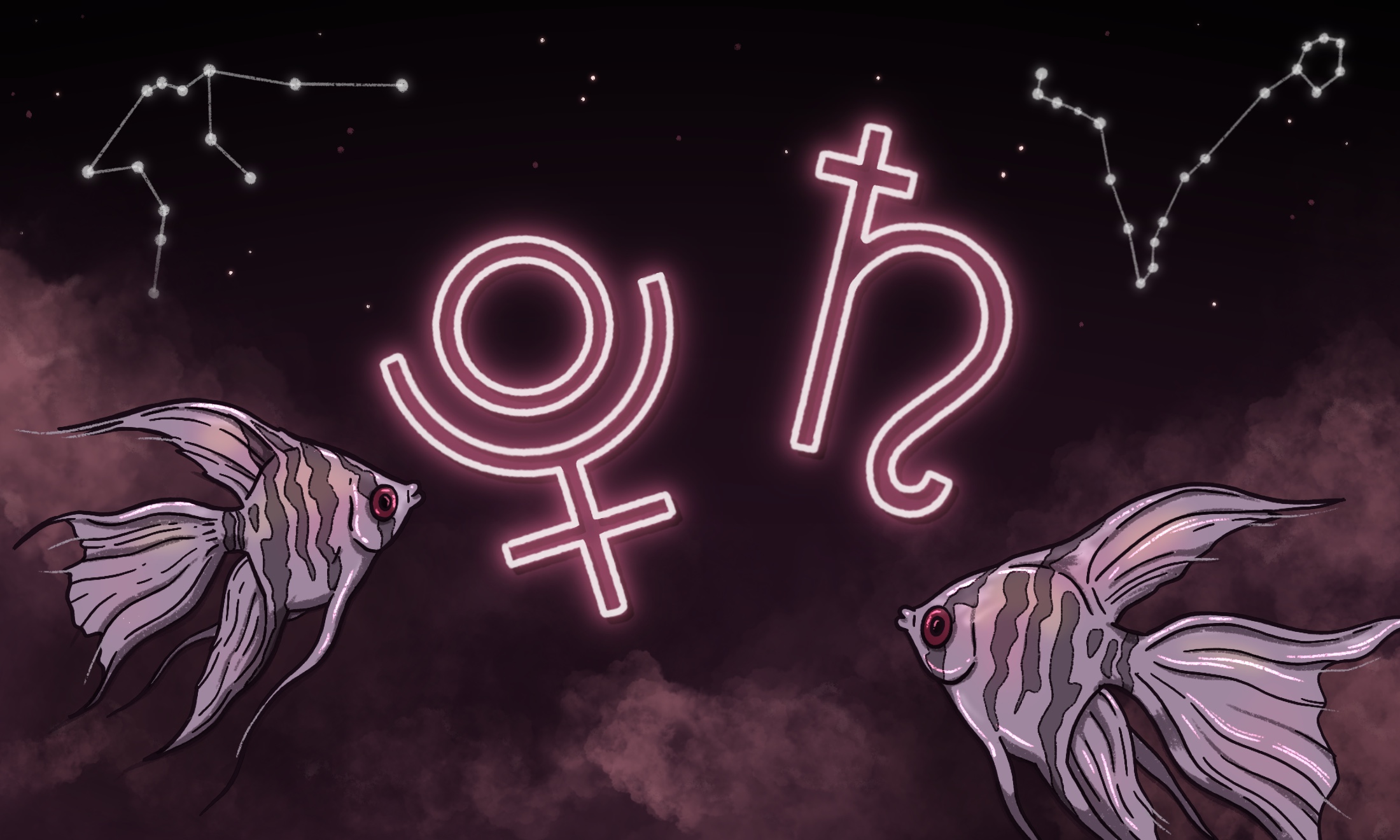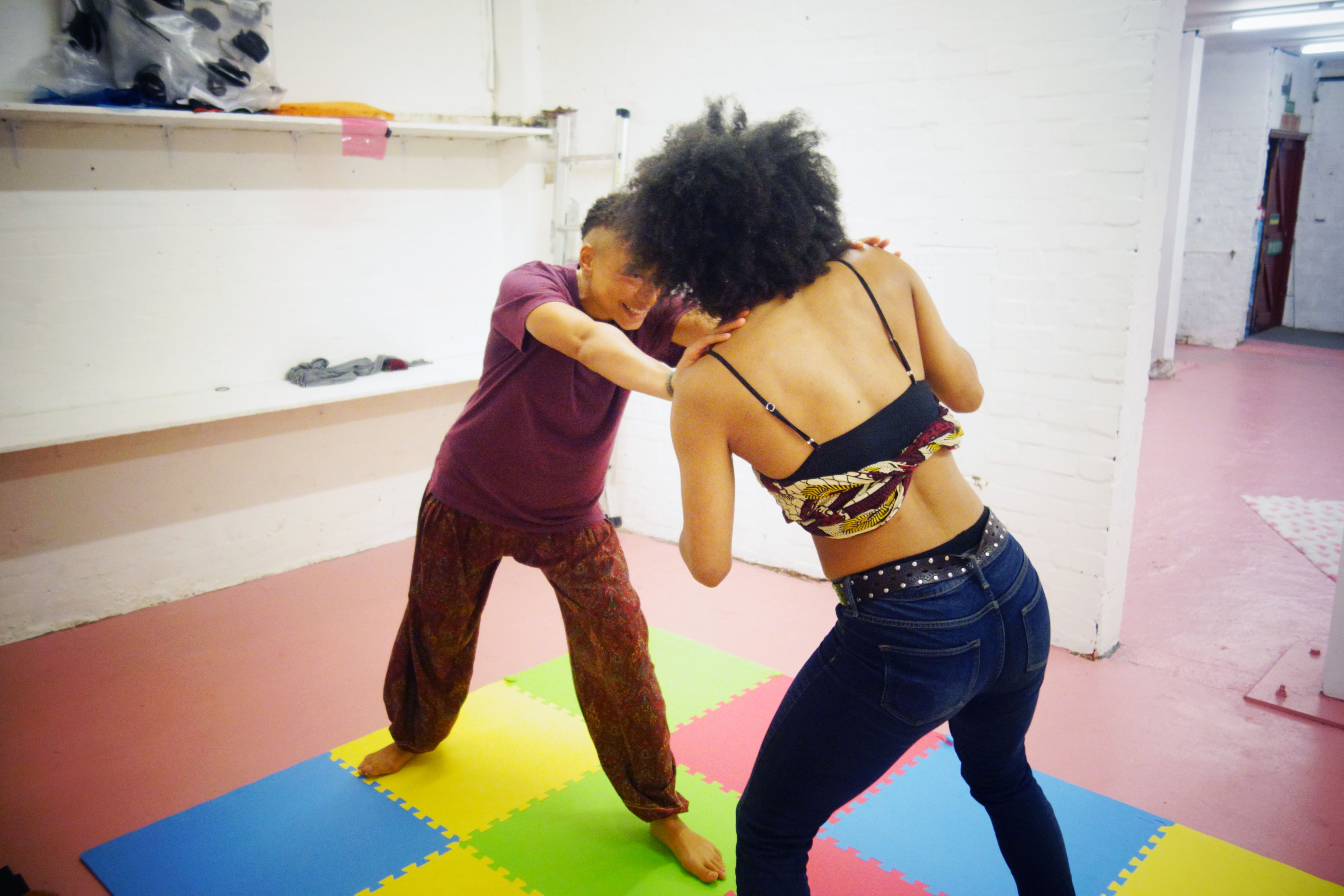
Britain is becoming less safe for women. According to Sisters Uncut, UK funding cuts now mean four in five BME survivors who approach domestic violence refuges for help are being turned away. A report published by the London Assembly Police and Crime Committee last November reveals that, while reports of violence against women and girls in the capital have been increasing over the past four years – with an 11 percent year on year increase in reported rapes and sexual offences – infuriatingly, the “extra pressure” on police forces (all too apparent in light of government cuts to the Metropolitan Police) means fewer reports have lead to individuals being charged.
“It became clear to us that there was an urgent need for women to take their safety into their own hands”
After a spate of intermittent nighttime attacks on the streets surrounding Haringey’s Warehouse District (the most horrifying involving two male attackers forcibly dragging a resident towards their car on her homeward path) a hotline was set up especially for women in the area to report to. Such disturbing anecdotes, unknown to the press and circulated only within a localised Facebook group, became alarming common knowledge to residents in the community – myself included. It became clear to us that there was an urgent need for women to take their safety into their own hands and shortly after, Ayesha Tan-Jones responded to this call and co-founded Shadow Sistxrs Fight Club as a self defence class for women, non binary folk, and QTIPOC witches.
Uniquely, SSFC is a defence group that pays homage to combative women of colour role models such as Sarraounia Mangou, animist chief and priestess of the Hausan Azna tribe who defeated French colonists at the Battle of Lougou (1899) in present-day Niger,Keiko Fukuda, pioneer of women’s judo and highest ranked judoka in history and Tura Satana, gang rape survivor, martial-artist, exotic dancer and B-movie legend.variably enshrined in myth, history and popular culture.
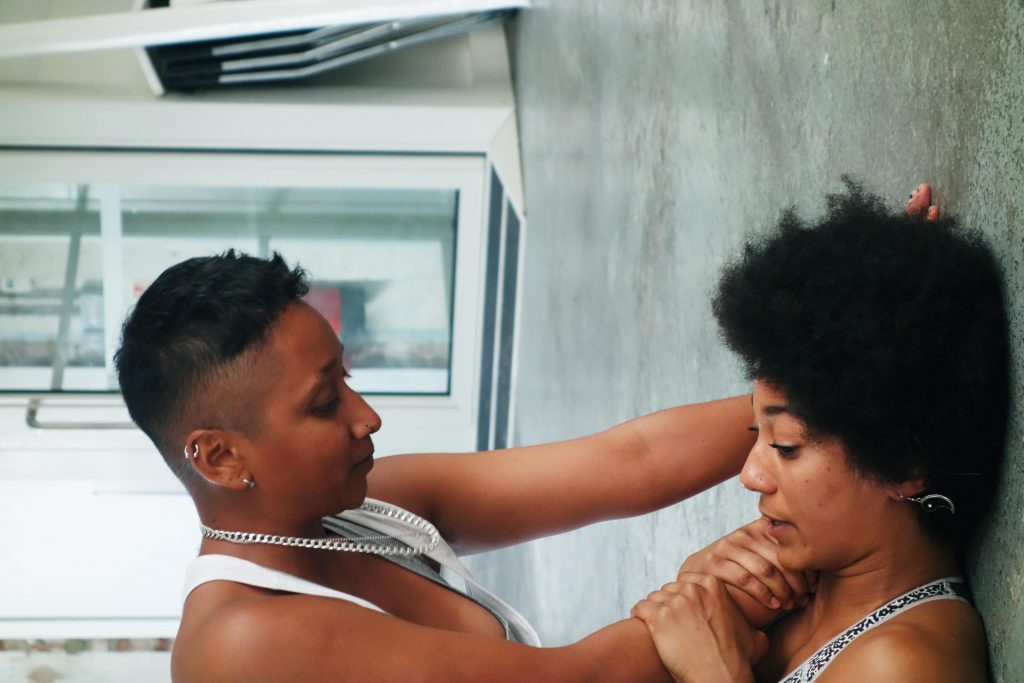
“We fight for our safety
We could punch a fascist in the face in our sleep
We exorcise neoliberal, patriarchal, radical rightwing ideologies and exercise our rights to freedom
We fight for Sarah Reed, Sandra Bland […] and all other women and men who have died in police custody
We will take every drop of moon juice and smother it on the faces of our enemies
And the blood, OH! the blood! we will feed it to the trees”
Of course, the group is also a coven. Remarking on their fundamental principles when setting up the club, Tan-Jones states that “a connection back to our higher selves through the aid of earth’s herbal gifts and through sacred ritual is important for our healing. Combining useful self-defence techniques allows us to build our confidence when out on the streets, and gives us a deeper connection to our physical bodies. We treat our classes like a ritual, we dedicate ourselves in those hours to this learning, and set our intentions accordingly.”
Unlike conventional self-defence clubs, Shadow Sistxrs puts an emphasis on teaching both physical and metaphysical self defence. As a self-professed novice-witch, this fusion between the practical and esoteric totally captivated me and piqued my investment in the series. Each session focusses on one of the seven chakras, and the Brazilian jiu-jitsu taught complements and harnesses the energies associated with each of these spiritual loci.
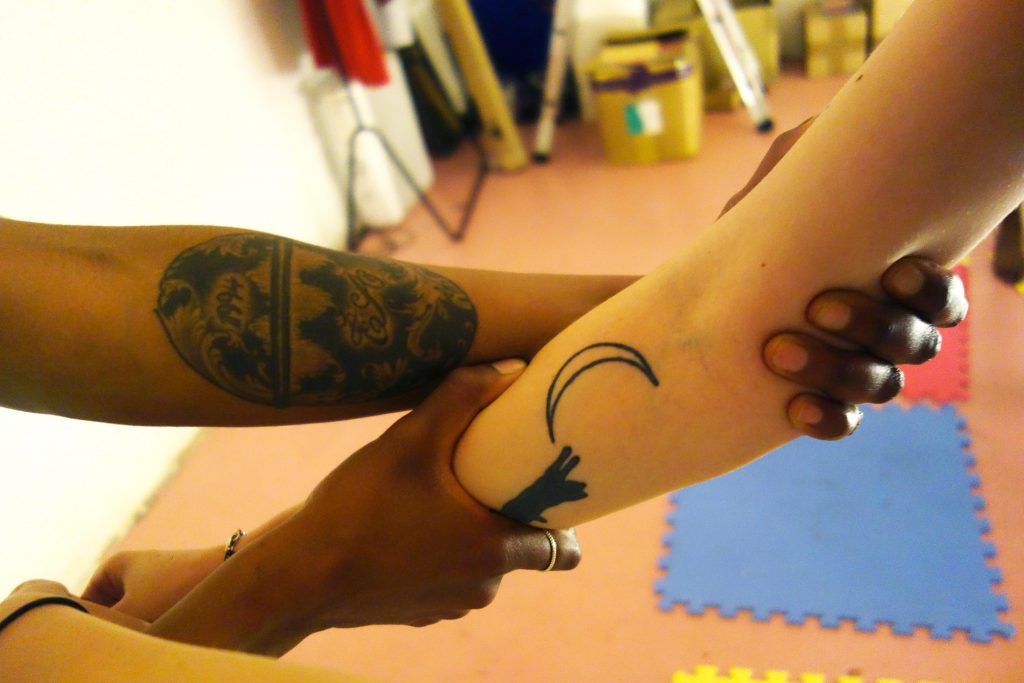
I discovered a beautiful paradox in the knowledge that women are most able to overpower their opponent on the ground. I was pleased to learn that I have a lot of strength in my upper thighs – more than enough to choke any potential rapist leering over my prone body in that devastating, hypothetical moment.
As instructor and SSFC co-founder Monique Etienne explains, women’s strength tends to be in the hips and this allows them to be more “functional movers” than men. Functional strength is something she believes must be learnt by us through practice; although she experiences martial arts as a great “leveller” for people of colour. It is nonetheless catered towards a certain male body type and dynamic. Etienne highlights how, just as grappling teaches us how to understand and manage our own strength, Shadow Sistxrs allows its disciples “to learn more about their physical and emotional boundaries, not just with other people but with themselves.”
“The most valuable lesson I’ve learnt about feminine power…is that it transfigures any imposition into an opportunity”
This central tenet of psychic self-mastery strikes to the heart of martial arts and magic alike. Indeed, the most valuable lesson I’ve learnt about feminine power in this context is that it transfigures any imposition into an opportunity: any attack into a self-destructive act. This dualistic philosophy had become crucial to me in navigating the transitional period of my life at which I began SSFC.
I tried to refocus my purpose after ditching a fledgling career in the “new media” industry. Shadow Sistxrs was instrumental in helping me heal from experiences that had left me disempowered of my voice, robbed of credit for my labour and any representation of my identity. I was slowly rediscovering that voice beneath the layers of corporate repression. I was pleased to discover that the throat chakra session began with some silent, group art therapy.
“This sorority aspect of the coven is conducive to creating an organic support network for its witches”
In fact, these meditative, therapeutic moments are imbedded into the framework of SSFC sessions. Every class rounds off its practical component with ceremonial tea drinking, lessons on crystals and herbs associated with the specific chakra – along with a general group discussion. There is something unifying about receiving a rose quartz from the same litter as my sistxrs, before cleansing it with the same smudge. This sorority aspect of the coven is conducive to creating an organic support network for its witches. It was a reminder for me that connectivity and community is vital to personal safety and feeling protected.
Gee Francois, a fellow POC sistxr, agrees that the group genuinely feels like a self-professed safe space that lives up to its claim. They testify that series one supported them through a difficult few months after their confidence had taken a knock from other “so called safe spaces” that had turned out to be quite the opposite. For Francois, the experience has ultimately helped to integrate their spiritual practice with their London lifestyle.
It’s allowed them “to feel supported in the knowing that there are other Goddessess and Witches alike also navigating this big city, overcoming trauma, injustice and oppression with serenity, integrity and still love to spare.” As Tan-Jones puts it, “by communing together, we are creating a powerful magical force, an energy of love and protection which we send out to our siblings elsewhere.”
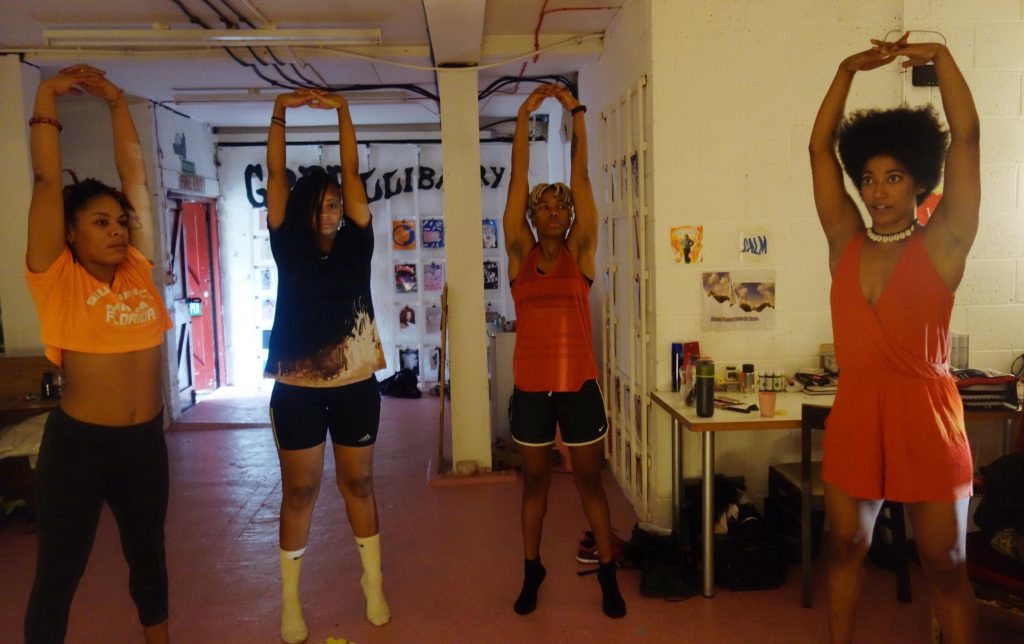
Shadow Sistxrs Fight Club is currently running in its second series. More workshops will follow in August’s Black Girls Picnic and YaYa Bones’ autumn EP launch – with all profits going towards maintaining SSFC’s donation-based system.




